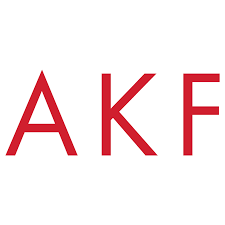Decarbonization Planning And Implementation — Closing The Gap With Owner’s Representative Services

Real estate is one of the top producers of greenhouse gasses in the world and is responsible for an estimated 40% of carbon emissions globally. In recent years, major cities across the country have begun rolling out building performance standards to help address that through local regulations.
New York City’s Local Law 97 has been called “one of the most ambitious plans for reducing emissions in the nation.” It calls for most buildings over 25K SF to meet new energy-efficiency and greenhouse gas emissions limits to help reduce citywide emissions by 40% by 2030 and by 80% by 2050, compared to a 2005 baseline. Similar regulations have been passed in Boston, Washington, D.C., San Francisco and beyond.
For building owners, this means the time to act is now, but the decarbonization process can feel daunting, particularly for multifamily property owners.
“The multifamily segment represents roughly 70% of the properties that are included in Local Law 97,” said David Sachs, decarbonization multifamily lead at AKF Group, which provides low-carbon design solutions for both existing and new construction buildings. “Owners of these buildings face many challenges implementing upgrades, including aging infrastructure, legacy heating systems and performing work with residents in place.”
In the past, when efficiency projects focused on incremental performance improvements with a fast payback, the process of upgrading a few key building systems was less complex, Sachs said. Today, however, owners need to focus on fully decarbonizing their fossil fuel-burning systems, particularly for heating and hot water. This is a much more complex process that often involves significant infrastructure upgrades. It requires a team of experienced electrical, mechanical and plumbing engineers to have confidence in both constructability and cost-effectiveness.
Multifamily owners Sachs has spoken with have mentioned a gap in the process from completing an energy audit or decarbonization study to hiring installers to implement identified strategies. Many don't have the budget or ability to manage and execute the project in-house or with a general contractor.
“This is particularly true for condos and co-ops where dedicated board volunteers may not have personal expertise in construction or electrical and mechanical engineering,” Sachs said. “And for many developers, this is new territory from the types of projects they're used to managing.”
AKF is filling that gap with its new owner’s representative offering. The company has long offered decarbonization studies, in which it learns a property team’s goals, identifies potential full electrification and hybrid solutions, and completes a due diligence investigation of each pathway from a technical, logistical and financial perspective. AKF has also long offered mechanical-electrical-plumbing, or MEP, design services, which may include full design or a more limited concept-level design, so that the owners don't need to pay for full construction sets before they are able to engage with contractors to get budget pricing. With its owner’s representative offering, AKF can now run a competitive bid process based on these concepts and the owner’s intent.
“AKF will be generating requests for proposals, gathering qualified turnkey installers, putting together a whole project plan and running a bid process based on AKF’s designs,” Sachs said. “This is so owners can feel confident that they're getting the best possible pricing from multiple installers based on a common concept and design.”
He said that if this step is skipped, owners may have a general sense of what they want and reach out to contractors to get pricing, but those contractors will each propose different solutions. This means owners will not be getting a true apples-to-apples comparison on one plan. Instead, they are put in a position where they not only have to compare who will do the best job and who has the best price but also evaluate multiple competing concepts.
“The idea is to have one trusted partner in AKF,” he said. “We will work with ownership or the board to determine the best options, weigh all of the goals and competing factors, and help them settle on the best path forward.”
He said that property owners will still hire turnkey installers directly, with AKF acting as an owner’s representative. He added that this is an important model because it means one installer is liable for every step in the installation and owners do not have to mediate potential conflicts that may arise between multiple contractors.
AKF will have its own separate contract with the client and act as its eyes, ears and mouthpiece to drive the project in collaboration with the installer and ensure that it is on track and in line with the design and original intent of the decarbonization plan. AKF will also facilitate all communications between the client and the installer, have centralized, cloud-based file sharing and documented communication, and address and manage any change orders that may arise.
Sachs said that AKF will also perform construction oversight — conducting regular inspections and coordinating in-unit access, which in multifamily projects can often be as complicated and challenging as some of the technical details of the project itself. AKF can also work with lenders and procure any incentives to assist with financing the project. Finally, it will handle the project closeout to ensure the systems work.
“The projects are complicated,” Sachs said. “It takes detailed engineering in combination with careful planning, strong communication and watchful oversight to ensure that they are successful. AKF can serve as a client’s outstretched arm to ensure it goes right.”
This article was produced in collaboration between AKF Group and Studio B. Bisnow news staff was not involved in the production of this content.
Studio B is Bisnow’s in-house content and design studio. To learn more about how Studio B can help your team, reach out to studio@bisnow.com.

